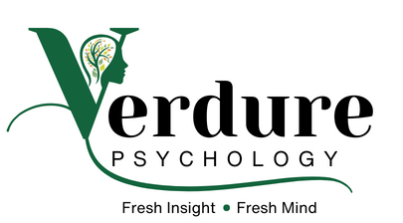Hi!
Thanks for stopping by.
My name’s Rich and I’m a Clinical Psychologist and the owner of Verdure Psychology…
My therapeutic approach is grounded in evidence-based practice, tailored to meet the unique needs of each individual. I believe in a collaborative relationship with clients, empowering them to become active participants in their journey toward mental wellness. I always try to go the extra mile to create a safe and non-judgmental space where people can explore their thoughts, emotions, and behaviours, and develop effective strategies for change and growth.
I was a professional singer and musician prior to my career as a Clinical Psychologist, and I had the privilege of touring the UK and Europe chasing my dreams. My band came tormentingly close to the ‘big time’ once and, when it ultimately didn’t work out, I was devastated. However, the feeling I get from helping people is genuinely more rewarding than any buzz I used to get from performing- I love what I do and I hope this shines through in my work.
Specialisations:
- Cognitive Behavioural Therapy (CBT): A very popular (and heavily evidence-based) approach, used to help clients identify and change negative thinking patterns and behaviours. I am trained in multiple types of CBT, including Enhanced CBT for Eating Disorders (CBT-E) and Trauma-Focussed CBT (TF-CBT).
- Compassion Focused Therapy (CFT): CFT is one of favourite models and it’s really helpful when there’s low self-esteem, shame or self-criticism in the mix (as clients with these difficulties typically report they can change thoughts using CBT strategies but that they don’t feel any different from doing so). CFT encourages a kinder, more compassionate relationship with oneself and is grounded in evolution theory and neuroscience.
- Acceptance and Commitment Therapy (ACT): ACT includes mindfulness and values work to help clients live a more meaningful and rewarding life. People learn to step back from their thoughts so that they have less power over them. I love using ACT to help people connect with themselves on a much deeper level than the relentless mental commentary that characterises most of our minds.
- Systemic Approaches: I am trained in Family-Based Treatment and Family Therapy for Anorexia Nervosa. These approaches can be particularly useful for teenagers and young adults with eating disorders who, understandably, often struggle to find the motivation to make changes independently.
- Person-Centred Counselling: A non-directive style of therapy in which the therapist offers the client empathy, congruence and unconditional positive regard. Rather than trying to fix someone’s problems, the person-centred therapist recognises that the person in front of them already has everything they’ll ever need and, by helping them nurture the right conditions for change, healing often happens organically.
- Integrated Therapy: A combination of the approaches above that’s guided by a person’s formulation (a shared understanding between the therapist and the client of how the difficulties arose and the factors maintaining them). Clinical Psychologists are one of the few professions trained in working in this way (as approaches need to be fused carefully to ensure they complement each other).

